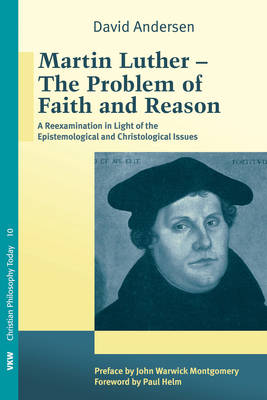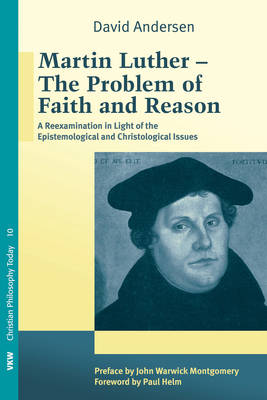
- Afhalen na 1 uur in een winkel met voorraad
- Gratis thuislevering in België vanaf € 30
- Ruim aanbod met 7 miljoen producten
- Afhalen na 1 uur in een winkel met voorraad
- Gratis thuislevering in België vanaf € 30
- Ruim aanbod met 7 miljoen producten
Zoeken
Omschrijving
Luther's critics have consistently charged him as an irrationalist and pessimist concerning reason's capabilities, and even by his followers as a fideist who sees little or no relationship between faith and reason. In this book, David Andersen offers a fresh and timely re-evaluation of Luther and his understanding of the relationship between faith and reason based upon a thorough engagement with Luther's mature writings. Dr. Andersen persuasively argues that, far from being either an irrationalist or a fideist, Luther stands within an empiricist tradition and that his pronouncements on fallen human reason can be understood only from that philosophical perspective. Based upon recent research into the writings of William of Ockham, who positively influenced Luther in this area, Dr. Andersen also shows that Luther can no longer be charged as a pessimist concerning human knowledge. Reason has an important role to play for Luther in bringing one to faith, and the objectivity of Christ's resurrection serves as that focal point that validates all Christian discourse. In subordinating itself to the facts of the death and resurrection of Christ for the forgiveness of sins, reason's created function is restored to some extent as it receives that forgiveness in the words of Holy Scripture and the visible means of Baptism and the Lord's Supper.
Specificaties
Betrokkenen
- Auteur(s):
- Uitgeverij:
Inhoud
- Aantal bladzijden:
- 196
- Taal:
- Engels
- Reeks:
- Reeksnummer:
- nr. 10
Eigenschappen
- Productcode (EAN):
- 9781620326008
- Verschijningsdatum:
- 1/09/2012
- Uitvoering:
- Paperback
- Formaat:
- Trade paperback (VS)
- Afmetingen:
- 150 mm x 229 mm
- Gewicht:
- 272 g

Alleen bij Standaard Boekhandel
+ 77 punten op je klantenkaart van Standaard Boekhandel
Beoordelingen
We publiceren alleen reviews die voldoen aan de voorwaarden voor reviews. Bekijk onze voorwaarden voor reviews.











